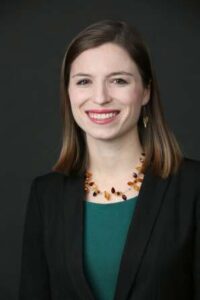PREPARE
SBP's mission is to shrink the time between disaster and recovery. The best way to achieve this is by reducing the need for recovery in the first place. SBP’s Prepare Program aims to better equip households, businesses, local officials, and NGOs with the knowledge and capacity to make informed disaster preparedness decisions and build more disaster-resilient communities.
To inquire about our disaster preparedness work contact us here: prepare@sbpusa.org
INITIATIVES
1) INCREASING FINANCIAL PREPAREDNESS FOR DISASTERS
Our ability to financially recover from disasters (which are economic shocks) underpins all other aspects of recovery. SBP’s Prepare Program works to increase the financial preparedness of households and communities for disaster events by improving understanding of disaster risks, promoting flood insurance uptake, educating households on the ways to make their homes safer, and stressing the importance of safeguarding important documents should a disaster occur. SBP’s Prepare Program aims to build a culture of preparedness by reframing what is included in preparedness conversations and planning. The program will be developing and disseminating new resources in vulnerable communities to meet this goal.
2) BUILDING INCLUSIVE FLOOD INSURANCE PROGRAMS
Current flood insurance options are unaffordable or too slow to meet the recovery needs of lower-income households. Additionally, many households do not have enough savings, are locked out of credit, and disaster aid is insufficient. Along with Advocate, SBP’s Prepare Program collaborates with partners to advise the creation and formation of new programs and pilots to make flood insurance affordable for lower-income households throughout the US. For example, SBP is a partner in an innovative flood insurance pilot program in NYC designed to rapidly provide emergency cash grants to lower-income households in the event of a flood.
3) LAUNCHING OUR COLLECTIVE IMPACT MODEL
By strategically bringing together local leaders in government, NGOs, and businesses for long-term preparedness and resilience-building activities, SBP’s Prepare Program aims to increase vulnerable communities’ self-reported preparedness for future disaster events. Our Collective Impact Model will seek to bring together key resources and capacities from across our Prepare, Share, and Advise teams.
4) ADDRESSING WILDFIRE RISK USING AI TO TARGET HOUSEHOLD LEVEL MITIGATION
In a new initiative, SBP is leveraging highly targeted household level wildfire mitigation data from our partner ZestyAI to help a frontline community with the highest wildfire risk in the country pilot a mitigation program. The goal is not only to reduce wildfire risks, but leverage the technology available today to increase the insurability of underserved households. Through our approach to implementing targeted mitigation measures, increasing local funding and capacity, and providing complementary education, we seek to ultimately rewrite the story of what wildfire risk looks like for our most vulnerable communities.
What We Offer
FOR HOUSEHOLDS
Trainings - SBP provides homeowners and renters FREE preparedness and resilience trainings in-person, via webinar, and through our eLearning. Our home resilience training helps residents take key preparedness measures including identifying risks, creating a family emergency plan, protecting important documents, getting the right insurance coverage, and physically protecting their homes.
Resources - Access our top recommended videos, e-learning, and written guides on our Be Prepared page or by downloading our Equip App to your phone for checklists and guides to get prepared before a disaster strikes.
Our Recommendation - All households should find out their home’s risk factors for floods and wildfires by searching their address or zipcode on Risk Factor.
FOR BUSINESSES
Trainings - SBP works with organizations of any size to help them protect their best asset - their employees - by providing home preparedness training so they can return to work sooner and with a clear mind following a disaster. Additionally, SBP offers business continuity training to help small businesses better protect people, property, finances, information, and operations. Our in-person and webinar training typically last one hour and are tailored to local area and partner needs.
FOR LOCAL OFFICIALS AND NGOS
Trainings - In partnership with teams across SBP, the Prepare Program offers trainings and webinars for local officials and NGOs to learn more about how they can best prepare their community members for the next disaster event. This includes collaborating with SBP’s Resilience and Recovery Fellows, who are positioned in rural, small, and medium-sized communities most vulnerable to disasters to raise awareness of disaster risks in those areas and the key actions people can take to address them.
Our Team

Helen Wiley is SBP’s Disaster Preparedness Program Director. Her expertise is in disaster insurance and risk communication. Helen’s domestic and international policy experience in disaster risk reduction and adaptation issues has grounded her belief in the criticality of better preparing vulnerable households and communities pre-disaster to improve recovery outcomes. Helen most recently worked at the Wharton Risk Center as Assistant Director of Research and Policy. She managed the Center’s Policy Incubator projects, which supported novel approaches for increasing resilience through workable on-the-ground solutions with public sector partners. She has also worked on international climate and disaster risk reduction projects at the German Development Institute (DIE) and at the Institute for Environment and Human Security (UNU-EHS). Helen holds a B.A. in Environmental Policy from Washington University in St. Louis; her M.Sc. in Geography of Environmental Risks and Human Security was administered jointly by the United Nations University and the University of Bonn, Germany.

Tessa Baran is SBP’s Prepare Program Associate. Tessa graduated from the University of South Carolina in 2021 with a Bachelor’s degree in Environmental Studies and Geography. Tessa most recently worked at the South Carolina Office of Resilience (SCOR) as a Paralegal in the Disaster Recovery Office before quickly transitioning to the role of a Program Coordinator for SCOR’s Mitigation Department, overseeing 30 projects across two programs in the stormwater management, mitigation, and resilience realm. Prior to working for the South Carolina state government, Tessa interned for the Deputy City Manager for Resilience and Sustainability in Annapolis, Maryland. In this position, Tessa conducted background research to identify minority groups historically left out of city-wide planning processes in an effort to directly engage with and elevate the voices of those underrepresented groups in the development of the Stakeholder and Community Engagement portion of the City’s Resiliency Plan.

